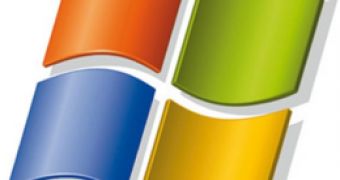While Windows Vista has had a rather slow start, Microsoft also contributed plenty to sabotaging the success of its latest Windows client. The Redmond giant not only ensured that Vista's predecessor is kept alive through extended support until 2014, but also managed to breathe new life into it with the release of Service Pack 3 in May 2008. And Windows XP SP3 is proving to be quite the survivor, as it has advanced on new territory in the detriment of Windows Vista Service Pack 1.
This despite the fact that Microsoft is consistently attempting to bury XP under Vista. An illustrative example in this context is the company's decision to extend "Windows offering to Nettop devices" following the success of "Windows on Netbooks." Windows Vista needs no extension but, at the same time, it fails to play well with ultra-low-cost computers, portable or not. So Microsoft is actually referring to Windows XP, now complete with SP3, but apparently cannot even bring itself to mention the XP label.
"In April, Microsoft announced the worldwide extension of the availability of Windows for this emerging class of devices that are primarily used for e-mail, accessing the Internet and instant messaging, and the company is seeing much demand among industry partners who want to ensure that customers can have the benefits of Windows on both new and existing devices," the Redmond company stated.
In April, the offering of Windows XP Home Edition was indeed prolonged past the operating system's availability kill off date scheduled for the end of June 2008. The announcement made a couple of months ago was focused on mobile ultra-low-cost PCs, with Microsoft promising that XP Home would continue to ship pre-loaded on OEM ULCPCs until June 2010, or one year after the delivery of Windows 7, whichever comes first.
Computex in Taipei, Taiwan was the stage where the software giant revealed that XP SP3 would continue to be delivered by its OEM partners not only on Netbooks (ULCPCs) but also on ultra-low-cost desktop machines. Microsoft cannot fill the exploding marketplace for the ultra-low-cost emerging class of computers with Windows Vista, because of the platform's high system requirements.
"Customers and partners have made it clear to us that they want Windows on their netbooks and nettops," explained Steven Guggenheimer, corporate vice president of the Original Equipment Manufacturer Division at Microsoft. "We are committed to providing Windows solutions for these devices, helping to ensure a high-quality experience for both our partners and customers."
No less than 20 original equipment manufacturers have partnered with Microsoft in order to keep on offering XP SP3 on ultra-low-cost mobile and desktop devices. The company enumerated Acer, ASUSTek, BenQ, Dell, First International Computer, Gigabyte Technology, HP, Inventec, Lenovo, Medion AG, Micro-Star International, Positivo Informatica, Pegatron, Quanta Computer and Wistron as the OEMs which will continue to serve Windows XP SP3 even in the context of Vista SP1.
"We have seen much demand for Windows on the Eee PC," commented Jerry Sheen, CEO of ASUSTek Computer. "It is great that Microsoft is addressing this customer demand and providing a Windows solution on these devices, which will provide a familiar computing experience."
The new ultra-low-cost mobile and desktop devices running XP SP3 will not be available exclusively on emerging markets, but also in developed countries where the target consumers are users looking for companion machines. Still, the new decision from Microsoft means that Vista SP1 now has even less room to breathe between the increasing demand for XP SP3 and the fast approaching Windows 7, due by the end of 2009.

 14 DAY TRIAL //
14 DAY TRIAL //